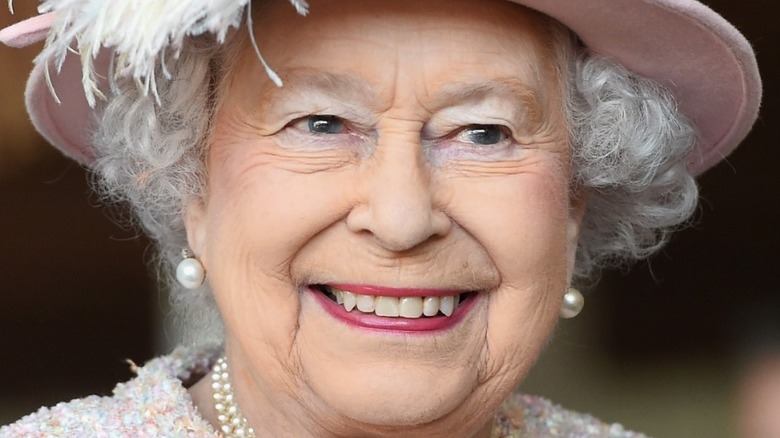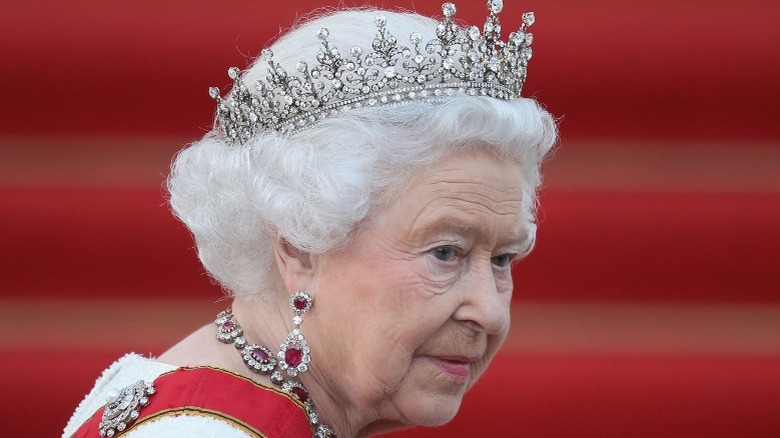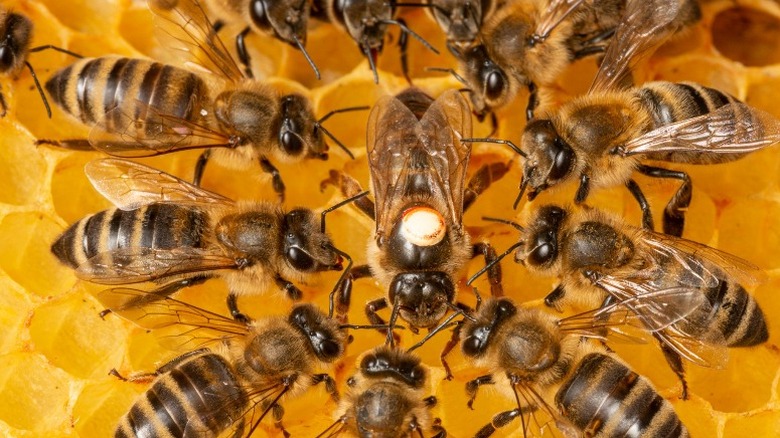The Royal Beekeeper Just Made A Bizarre Announcement Following The Queen's Death
After the announcement of Queen Elizabeth's death, the world has been grieving, the stories of the countless loved ones and attendants of the late monarch washing over mourners from every corner of the globe. The death of a British monarch involves many customs and traditions that the world hasn't seen in decades. No doubt, today's rapid media reporting gives today's generation a much more in-depth look at what to expect when a king or queen dies.
Following her death, many mourners were surprised to learn of an age-old custom that follows the death of someone in royal service. It's common knowledge that the monarchy has quite the apiary, with hives kept at both Buckingham Palace and Clarence House. In the summer, it's been estimated that there are a million bees between the two, providing more honey to the royal family than you can imagine.
But in what some would deem an unusual custom, the Royal Beekeeper announced on Friday that he traveled to the hives so that he could personally deliver the news of the queen's death to the bees. This tradition, dating back centuries, was carried out by John Chapple, who had been in her majesty's service for 15 years (via The Daily Mail). In his interview with The Daily Mail, Chapple discussed the tradition and why it has been considered important for all these years.
The Royal Beekeeper's tradition
Chapple told The Daily Mail that his duties called upon him to knock gently on each hive and tell its occupants that their mistress has passed on. He then informed them that their new master was King Charles III. After breaking the news to the bees, Chapple tied a black ribbon and black bow onto the hive before moving on to the next one. He stated, "The person who has died is the master or mistress of the hives, someone important in the family who dies and you don't get any more important than the queen, do you?"
Chapple is the latest to carry out a tradition that is meant to keep the bees in the service of the palace. It was thought long ago that if bees are not given proper notice of their master or mistress's death that they would not be able to properly mourn. This, it was believed, would lead to the bees not being able to produce any more honey. It was also feared that the bees and their queen might leave the hive altogether, in search of a new master.
The custom of 'telling the bees' has been practiced all over Europe
The custom of delivering important news to the bees in a family's service was not limited to the royal family, or even Great Britain. In fact, this custom has been part of folklore all over Europe, and even made its way to the shores of New England in the United States. The Atlantic reports of how "telling the bees" refers to disclosing not just a death to the winged honey makers, but also any news that would be considered important to the family. A birth or a marriage was also expected to be told to the hive's occupants, lest they become angered and abandon it.
Whether you find the custom of "telling the bees" to be superstitious or believe its validity is tied to developing a closer connection with lives that are put into our service, it's still being practiced, with no sign of dying out any time in the near future.


